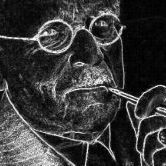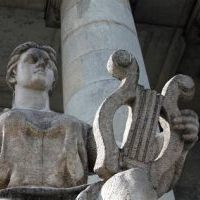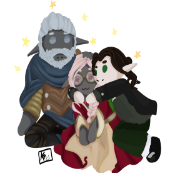-
Posts
941 -
Joined
Content Type
Profiles
Personas
Wiki
Rules
War
Systems
Safety
Player Conduct
Forums
Forms
Everything posted by Callistus
-
yes but unironically
-
3rd week as a lore-holder. I notice the elves are staring at me more and cave in a lot easier. The sutican housewives flash their shoulders as soon as I'm around now and their liberal boyfriends no longer make eye-contact. Will update soon.
- Show previous comments 1 more
-

-

-

I find this threatening and intimidating. expect staff to contact you as soon as you read this.
-
for people with interest in literary / playwright roleplay through an upcoming sequence of performances, seek contact with either publius or myself so we may we establish roles
-

-

hey wassup I’m playing a playwright
https://www.lordofthecraft.net/forums/topic/193198-the-collected-works-of-bianca-la-fleur/
-
-
”You shall be taken into consideration. Seek out Johnstown, and call to the pilgriming counsul of Aemesh. The whispers will rightly guide you, where the trials may prove your worth.” ((Discord is Callistus#6280))
-
An old man recalled a decadent folktale, one not yet forgotten to his people “... But if the aide of God were not conjured, although greatly pled, and limp was his right hand to the pleas sung without reutrn, may the Sun thereby be devoured; that in its wane, the dark may reign.”
-
”You shall be taken into consideration. Seek out Johnstown, and call to the pilgriming counsul of Aemesh. The whispers will rightly guide you, where the trials may prove your worth.” ((Discord is Callistus#6280))
-
”You shall be taken into consideration. Seek out Johnstown, and call to the pilgriming counsul of Aemesh. The whispers will rightly guide you, where the trials may prove your worth.” ((Discord is Callistus#6280))
-
“And a brassen crown I bestow unto thee, quoth the living Martyr, whose name imposed on the heavens high; that thou may preserveth the elden knowledges on Earth, and of the truth apprise thine flock.” The Vicarage of Aemesh _______________________________________________________________________________________ https://www.youtube.com/watch?v=2zxEOIRQwd4 I exhausted most bloodborne osts, recommend to me good music I. Preface II. Purpose III; The Martyr / Living Apostle IV; Precepts of Solemn Service V; Path of the Olden Ones VI; Vow of Induction; The Divine Adage VII; Hierarchy vii/a: “The Vicars”, vii/b: “The Ministry”, vii/c: “The Scholars / Inquisitors”, vii/d: “Oath Hunters”, vii/e; “Seekers” VIII; Process of Ordination I. Preface Founded upon the primitive teachings of the Canon Church, the Vicarage as proposed of its name conveys at this age an archaic school of faith and thought derivative of the source canon. As the faith endured its early differential schisms, there were those who alleged themselves immortally true to the first scripts, exhorting their children thereupon to abide in faith and uphold its integrity throughout a time of plunging virtues and mediocre values. It is of this procession of blood that the Aemeshite rulership claims descent, professing a dubious - and perhaps staggering - account of unwavering fidelity to the faith of their forefathers throughout the times. It is loftily preposterous, however amusing, that the creed should proclaim such resolve to heritage, but it remains wholly factual that few ever dared doubt the credibility of their devotion to the ancestral faith. It stands to reason therefore that those in the creed who offer guidance spiritualize passages of the old scripture in order to lend credence to their word and lesson, and inscribe them with greater import. "Guide us, oh living apostle, pilgrim through this barren land." II. Purpose The primordial and foremost of all intents within the creed lies per reason in the motive to preserve the teachings of the first ones from deterioration at the hands of weaker men and temporal modernizers, but also upon the virtue to shepherd the unguided from the path of divergence and total ignorance. The Vicarage did not over the ages deviate from this early design, but further rode instead in pursuit of the strewn knowledges, for which the hunt is thought - in accordance with their own scriptures - to have been entrusted into their lineage, and the many unblooded scholars of the covenant. As previously established, this scholarly pursuit, embedded in the faith as a pilgrimage and sacred journey required of all aspiring men, stands only second to the original purpose, and does not run in defiance with pre-established principles of the old faith. There are those, however, who had forgotten the sacred accord and driven themselves into unseen verges, betraying themselves to pungent abandon. Those who relinquish themselves to the perfidy of fire are known among the seekers as apostates, and are outcast from the creed, deserven only to death at the hands of oath hunters. “And there came truth of the smoldering darkness upon land, where unto them He entrusted the preserval of verity, that only they may stand on the corpse of Earth, and soon preside over the lesser firmaments.” III. The Martyr, or Living Apostle Of the innumerous figures recounted in the ancient lores of Aemesh, there are none so highly thought of as the Martyr, once said to be a lesser Aengul who walked among men in a time of religious conjecture, and who guided the first flock of Aemesh into the righteous path. To the Aemeshites, it is the Martyr from whom they claim permanence of faith and extant position as a chosen flock that, since the dawn of time, did not abdicate nor pervert the integrity of the old faith. It hereupon comes as no surprise that altars are risen tall of his image, and invocations of all manner and sort consolidate his name in plea and calling, exemplifying in great clarity the height of position he poses to the covenant and its court of disciples. IV. Precepts of Solemn Service The blood of kindred is sacred, and must not be let. The Eye is dormant, and shan’t be fought over; lest it wake’d, His soul anger’d. Foul death betide he who hath expos’d the godly accord, and the olden cult, or ever so whisper’d in perfidy. Fear the eye whence it waketh, and bide safely thy hidden nests; for the will is weakest before the gaping eye, yet the flesh ever strongest. One who so profess’d false worship and became pagan thus merits returnance unto ash, as he from ash born is to ash returned. Damned and twice-cursed be he who spoketh ill of God or His disciples, for their very hearts are dead and they cannot feel. One who forsaketh the doctrine of the First Men hast forsaken faith itself, and attests no solace in the sanction of God. Let his eyes thus burn whose flesh is blind, and his hide sung in fire. He who falleth in sin deep that he cannot find contrition should be left to ash untended, without recoverance, for the sinful atone with anguish. To deny a greater priest obeisance is to forsake oneself of all desire by means of earthly imprisonment; as they belong evermore to the barren earth, entombed, immortally undying. “The lights of knowledge bade the Sun, As darkness burnt and avail’d; Forbidden lands we walk’d upon, And death betide who fail’d. Men shalt die and beasts might perish, At the birth of a great God-child Blood shalt spill of sinful clerics, As skins so twist to hide.” V. Path of the Bornless One Those of the vicarage abide in keeping with the way of their forefathers to an invariable doctrine of method, ensuring thereon the continued strength of the creed and its survival unto their later progeny. It is in twisted devotion of faith and fiery spirit that they single themselves among the rabble of mankind as a chosen few, unto whom God - again, in belief - imposed the divine burden of preserving the unspoken knowledges and shepherding those worthy into the righteous path led by moonlight. No doubt this fervor reflects broadly upon their kindled souls and incites thereupon a wrath said to be ordained of the heavens, which in turn strongly fuels their vigor against the dissent of heathenry and those whose presence incapicates in any way the moonlit course of the covenant. It is with neither regard for consequence nor repugnance do the true hunters and scholars forcibly raze a path towards guidance, and in the face of foes are more than willing to tread the gravest of measures in ensurance of consummate execution and closure of duty. Those who so willingly abandon the path as easily as they had entered it poise to the watchful eyes of the vicarage the farthest of threat of all, after pretendants to false Godhood, for only in such apostasy does the soul of a mortal-being cascade into the pit of spirits whilst its bearer forcibly persists upon the mortal realm. This the covenant considers nothing short of a heresy, a sham and a cruel stain upon the mortal veil, and therefore serves these stragglers to a blasphemous - albeit virtuous in nature - funeral, by means of imposing the foreign service of cremation or baptism of fire. This can perhaps be thought a mere display of mercy, as those cleansed by fire are returned to the heavens, and possibly even atoned of sin. By no means also does the covenant insinuate any affront against the Canon and its many derivative branches, for although they see in its advocates a misguided people, they are not yet numbered among those plunged beyond hope. Unlike, for instance, the common elvenesse, whose beliefs had cut a much farther route from any pretense of faith or spiritual morality, which rivens them of all pity. VI. Vow of Induction – The First Adage The scriptures had implied since the rise of the ancient convenant, upholden well and truly by the dictation of tradition, that those inducted into the order must bind themselves in sacred oath, both spiritually and corporeally, by reciting words that shall signify in finality their commitment and solemn entrance into the order, from whence there can be no annulment nor return unpunished. Though the precise recital of words did indeed differ from generation unto another, it is ruled that there can be found no difference in neither nature or concept of the vow first uttered by the olden ones to that spoken today by present aspirants, and that the substance of dictum is received equally at all differing times, as observed very fairly by Saint Hergynrich. Once its speaker is knelt and presented afore fair council, and his fingers are aligned in formation of the Order’s sacred symbol - taught only prior to inception - the recital may thus go as follows; "Old lores tempt us far, as beasts unto feeble sheep Beware the scourge that calls to men. Deliver us our petty curiosity, guide our flock toward the deep And light our eyes as you once did the first men." VII. Hierarchy The Vicars A council of ruling figures comprised entirely of blood claimants, vicars are bestowed a greater influence over the covenant, and are alone the father elders into whom the Martyr vested divine will-power and wisdom to lord upon the vicarage. Their words are as though scripture to the disciples, and their posture within the covenant mirrors that of the mind, through whom cardinal mandate is decreed and principals are decisively imposed. The Ministry The ministry constitutes an order of leading figures second only to the vicars, imparted authority through elective selection by the higher council. It is of their duty to ensure established order, shepherd the lesser disciples from perversion and etch the decisive mark of apostasy on those who had abandoned creed. Should chance prescribe the Vicars absent, it is they who shoulder the burden of authority and perpetuate the inquisition into sought knowledges, for their posture within the covenant mirrors that of the heart, through which the covenant prevails and quenches approaching darkness. The Scholars / Inquisitors The scholars of Aemesh form in themselves a part that is both propitious and integral to the continuity of the bloodline, whereupon their expansion into the darker fields of knowledge becomes a matter of utmost import. It is in this light that a council of bygone antiquity decided on the formation of a body of scholars whose purpose lied highly withdrawn from the rest of the covenant, far beyond the deep. To this end, the first scholars came to be as men wholly diligent and devoted to the primordial cause who studied properties of the realm that had long faded into obscurity. Here, the body converged with that of the inquisitors, who would physically venture upon said uncharted territory in order to seek preternatural communion and retrieve lost relics or artefacts relevant to the order's pursuit. It should not be surmised, however, that a scholar cannot also be an inquisitor, for one can indeed be both, if at their own risk. The Scholars and Inquisitors therefore mirror that of the eye and hand, in respective order. Oath Hunters Following a period of rising desertions and perfidy within covenant grounds, there had become in the elders' eyes a necessity to impose grave consequence on those who should forsake their vows, which came at that time to be embodied in a caste of adept hunters who coined themselves Abrathians. These men operated separately from the rest of the body and distinguished themselves by an inhumane bestiality which verged on the brink of beasthood, employing horrid techniques that swiftly eradicated any notions of treachery. Their vile repute derives from a methodical pattern of execution, typically from their habit of drenching the copse of a victim in oil and igniting it in through-cleansing flames, or at other times etching the cranium with a mark of apostasy. The troupe had later become the oath-hunters, and mirrors that of the sword through which justice is coldly, and impartially dealt. Seekers Those who had yet to prove themselves before the ministry and high council, but who show if only a glimpse of hope are termed seekers, and are the lowest of folk within the covenant. At this point, a seeker must stand out among others and carry their weight before they can amount to anything. Process of Ordination What is your birth-name? To whom do you vow foremost fealty? To whom else do you owe allegiance? What is the purpsoe you regard most cardinal to the continuity of mankind and all mortal-being? Unto what form are apostates returned on death? What ought men remain wary of? Who is he that merits your spiritual faith and devotion? For discord contact, seek Callistus#6280
- 10 replies
-
15
-
but please, have mercy. In all honesty I do not think astral concepts deserve to be shoehorned into an applied lore magick. The idea of this niche is that it is by form and nature an unexplored and vague magick spoken of and described only to superficial lengths, while being otherwise torn entirely from pre-established facts and lore enforced descriptions. The void is there already to satisfy the venue of sorcerous spells and teasing power from unseen chasms, so why appropriate another perfectly abstract concept meant strictly to countervail the void? I just don’t see the point. I too once thought of writing on astral lores, but rightly came to the conclusion that the venue is better left well alone. It thrives thus far as an obscure realm withdrawn in entirety from all the glimmering elements we see casually deriving from the void. Just my honest thoughts.
-
Does this mean that beyond its first ingestion, this concotion may never be imbibed a second time? If not, I am personally dubious of strength sources that are exempt from true consequence, like a PK on death clause, without which there is a lot left to be desired. Nobody wants to face a practically immortal (thanks to monks) individual with power to indefinitely consume a potion that heightens strength twofold.
-

[✓] [Playable CA + Feat Addition] Siliti
Callistus replied to Zarsies's topic in Non-Playable Creatures/Event Creatures
I apologize for the confusion around the subject of blood in the initial werbeast submission, but vargr are in fact entirely deprived of genus and will no doubt prove any cuisinière a much unsavory meal given their dissocation to holy substance and the sheer flawed prospect of their existence (they are, after all, living failures). -
*slow claps* *steps out of the shadows* Heh... not bad, kid. Not bad at all. Your meme, I mean. It's not bad. A good first attempt. It's plenty dank... I can tell it's got some thought behind it... lots of quotable material... But memeing isn't all sunshine and rainbows, kid. You're skilled... that much I can tell. But do you have what it takes to be a Memester? To join those esteemed meme ranks? To call yourself a member of the Ruseman's Corps? Memeing takes talent, that much is true. But more than that it takes heart. The world-class Memesters - I mean the big guys, like Johnny Hammersticks and Billy Kuahana - they're out there day and night, burning the midnight meme-oil, working tirelessly to craft that next big meme. And you know what, kid? 99 times out of a hundred, that new meme fails. Someone dismisses it as bait, or says it's "tryhard," or ignores it as they copy/paste the latest shitpost copypasta dreamt up by those sorry excuses for cut-rate memers over at reddit. The Meme Game is rough, kid, and I don't just mean the one you just lost :^). It's a rough business, and for every artisan meme you craft in your meme bakery, some cocksucker at 9gag has a picture of a duck or some **** that a million different Johnny No-Names will attach a milion different captions to. Chin up, kid. Don't get all mopey on me. You've got skill. You've got talent. You just need to show your drive. See you on the boards...
-
“Come, oh pale death.” Indeed, one may ascribe this man no mere figment of horrid madness For this man is still among the accursed, and his grave is still black marked. Death is a lying wench, but it bears a man’s name. And in fact, his grave has long been marked. And of that matter the godly man knew very well. In the dim, moonlit fields of night, there became a melodious ensemble among the trees. A song, one might say, but this man might so beg to differ. For though a chant is oft a product of pure Man, this baleful chant was of no such origin. No man in-fact dared ever to utter its words, fearing rightly the wrath of divine damnation so ever wrought upon his accursed blood. But I truly ask, vir, what is damnation? Man is damned since his very first inception. The whole world, after all, is but a basin for the nameless damned. Even you, foul lectorem, whose name I dare not even utter of mere respect. And even that watchful corpse in its pitiful grave. Why, everyone ought to be damned, for they too were cast from the fields of heaven themselves. But the primeval debate yet stood, and there ever so rose the question from unproclaimed wiseful men; what, exactly, and at length; why? To that, there is shorn but a vestige of an answer. Let me recite to you here, dear vir, this ludicrous tale of one such damned A meek creature, or man if you so wish, and it’s wont to suffer death, time and time again. Enough death, little dear, to make a man mad. Madness ought to consume. And did I not thus forewarn? And so it goes, in the steps of rancid, entirely hideous beasts, who trod an unmarked woods and let off tired neighs. And there stood an oak that plainly watched, a curious sight (but it had no eyes!) laughing at the very matters these few men so spoke of. The cosm, after all, and the unmarked wood, and the wasteland, and the burial ground, so forth, are endless things in abbreviation, but they all connote a singular fate. Take your time, friend, and appraise this matter so well as your name. Onto the man’s q̇ueer tale, there came after his presence a most fearsome pack of brigands, to whom death was all a staked game! Their names, after all, coined themselves upon martyrs of their sword, and the pallor of their face so betrayed the truth of lustful sin. Is it not, after all, but Man’s great wont, To damn themselves in the lust for sin? One might even say their blades grew that same, wontful desire! Quaint, is it not? How death bonds all, of damned and accursed? Thus marching still on steady course, there sounded amongst the men some saintly echo But fear not, it is but a mere small omen to the chantful ode of their mirth. By GOD, dear vir, do not make me laugh! Only a fool, a drunk madman, deep drowned in his righteous scruples ever denied the carnal pleasures that derive of cutting up an old, weak cripple, at tales of such lustrous coin. By GOD there still, who would not deign to prance and delight?! A limb for a hundred marks, they so danc’d, that even the crows made rejoice. These damned, barking birds, even their song was hideous! Their beaks defied the very abyss and wailing heavens, for it wept of cruel, white rain. And these men so trod on geldings of ash, tongues starched. Intent, as told those little marks on their face, to savor each, hanging limb of the sickly vicar. A weakly thing. But the weak are made to be preyed upon. Is not death their carnal right? Thus is their hateful fate. Silence! Haer, how the pillar of madness madly speak. Why, even the heavens cried and croaked. We hence arrive near to the tale of so damned a man. And yet as we bring forth our ears to hark, or hear tears of this broken thing’s fear, why, silence becomes. Naught indeed, only the empty, curious ballads, shrill voices, dead muses, wrought from most hollow graves. One even comes to beckon the dubious wonder, is it truly blood that so lies steep in Man? But I acquit. Nothing lies there. For only ghosts dwell’d such silence, beneath such dark moonlight. Yes, vir, only poor death lie there. To mock the stray or passing soul. He, that death, was even said to smile; deep in sepulchure, scraping coffins, touching his new gifts. But do pray, sinful man, is there a thing that would not? Death feeds on all, and whom upon do you feed, worthless, filthy thing? Not even life. Not even dirt. But q̇ueer lies, the rest of it all. For a basin of death may not speak; I digress, it merely cannot! It is all but humorous jests, cast from those black, serpentine tongues of elves. Damn them all! Damn them with Leprosy, mayhaps, or the horrors of a vacuous mind! But see, death simply savors the old. And striding there on emptiness was, quite simply, a savory old, old man. That damned, whoreson of a man of whom we prior spoke. And this man, in his hauntless crow feathers and black garbs, was not. He cursed every name. Why, he even cursed God For he was already damned, just like the rest of us all. And little ever mattered to this man. For this man, fled, and seldom did he ever flee. A droll thing, indifferent from those little, fleeing rats. Who with conviction also ran. But foolish are they who so think to outrun the grave. He ran fast, and floundered faster, cowering beneath the crowns of pine-trees, shrinking from the bitter, fiery cold. He ran from rain, and ran from death itself. Wet, black boots crossed him from tree to tree, but the old man still shivered, still panted like a dog with dropsy, glancing fearfully behind himself, praying. He peered at the sky he so cursed At the tearing firmament he so foolishly left Staring, sitting, limping, merely waiting. And in waiting did he watch the laughing clearing, laugh. And clear. But it dare not stare back. Only the abyss did, they whispered him a silent, ever shallow gust of ash. And hell pranced in its devious voice. “Nameless,” the voice dared speak, breaking in senile prayer. “Accursed, echt, arrashhe.. . Pity this low and dying soul.” And ever so damned was his wish, for death was old and deaf. The riders fast arrived upon their pale geldings, and resent still hailed in their vert eyes, with fleeting wraiths in a whist, cold barrow long old, yet danced. They set their eyes on, and about, and they grazed at bleak truth itself. Thus one, whom deathly gaze glimmered of cruel firn spurred his beast. And a blade so sung and swung, thirsting more than the man himself. This bashful, unkind thing, damn it too; it did not even spare the man his arm. Thus pain cruelly shot within that resigned, black pilgrim, and a shriek spurted from his very gullet, shoal, and weak. But a sorry little thing, marked for harrowing death. He cradled the lost arm upon his breast, and ran, howling not much unlike a pitiful, rabid dog. And the carnal ravens flocked above the trees, awaiting patiently the fall of this feeble, fragile little prey. And true enough, he did not run very long for his leg buckled. And poor, poor Emreis.. why, even his lungs gave in. He lived, at best, a hundred and twenty years of age, propped merely by the curse of patchwork sorcery, and some laughable, lesser breed of spells. A cruel, dread mark, yet carved on his wearing flesh, denotative of sinful rebirth. Incarnation. But not even virgin’s blood, could sustain a man so bygone, drivelling, old and so festering. “Wretch!” he quoth, But, only imperious voices, and broken, foggy words croaked back. “Wretch!” the old pilgrim recited, and laughter, too, rang in his voice. Crazed, at once perhaps thunderous. But merely laughter rang. He concocted in his mind a choir - why, he had not even a vocal chord - and lifted, with a single, bleeding hand, that relic. Of a bygone arm. He offered it to heaven. A shrill thing, that unsightly man, parading his own idle limb in so great a frenzy, curiously then laughing. These devilish men descended their eunuchs, baring hard steel, sputtering sheer black mucus Cursing with vile perfidy that very man which spoke them.. oh, so, very wrong and deathly. “God is with me!” he crowed and cowered like a desperate child, form haggard, yet hunching down like that of a broken thing; “Look! See! The skies, even its empty sea.. And the left hand is with me!” But they regarded little this old, raving pilgrim, and his mad and spoken antics. They wrenched back his shawled head, and extended there a dagger to the throat, nearing to slit. And he laughed quite viciously, if I may say, it so seemed he laughed not of his chords - for he had none - but of his heart. Yes, vir, his heart. It is prevalent that the heart itself speaks loudest, and loud it truly spoke. So loud indeed that said heart burst, where the man sat there drowning. Drowning, and bathing in his own choke, in his own blood. Not from the knife! Oh, no, no, but of his own heart, that burst and broken heart. Such dim, sickly blood in fact poured, drenching - or some might say blessing - the earth, with that old, viscous blood. And yet eyes, oh, such bloodshot eyes stared alive, and the mouth, much contorting as if to so whisper vainly of great and forgotten things. But they could not hear what spilt of that heavenly chant. Hurriedly they diced his arms, and stole his watchful eyes. Poached this wrathful, imperious black tongue. For soon, they would vanish. But the pilgrim alone would not. He lived, in the words of men. And the eyes of this maddened pilgrim, looked never far from the moon. As if drunk, or indeed aware of its pale light. Ah. . that lavish thing of old moonlight. Like that of a starved, addled blood-freak. For there he stared; at that singular, dull, ashen eye of God, ever hung from the old stars. Until the carnal crows lapped him clean.
-
Then do so.. lest thou seek with foul impunity to insinuate here an affront? Hah- I jest and merely gibe, it is true. lest.. ? MACABRE VANITAS
-
What went thee back into this wilderness to find? You’ve never apprised me of the Arcane Displacement rendition I put up in tribute to your (and other’s) fine work. Tell me, truly I exhort!
-

[Shelved][✓] [Feat Lore] Pale Blood Magic
Callistus replied to Zarsies's topic in Recently Outdated Lore
look what the plague dragged in. -
https://www.lordofthecraft.net/forums/topic/188030-misc-feat-arcane-displacement-ancient-art-of-the-planeswalker/ I had already submitted a rewrite. Is this perfidy I witness?
-
I’d take a dump here but bad sh*t happened last time I tried shitting on vampires







